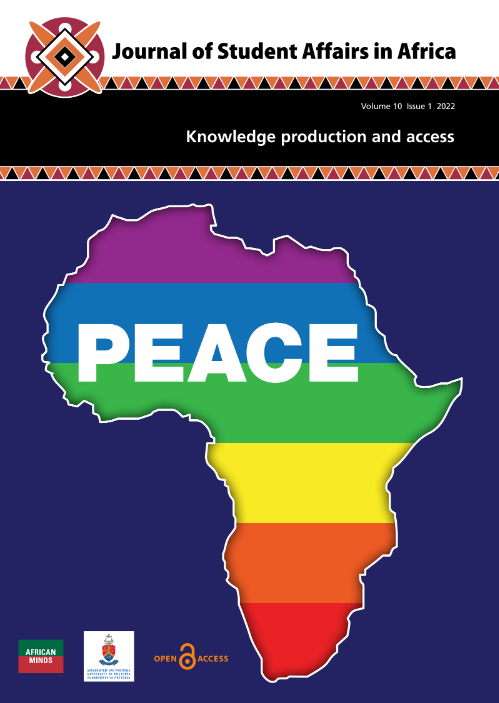Expectations versus Realities: Insights into the Transition Experiences of International Students at Two Universities in Nigeria
DOI:
https://doi.org/10.24085/jsaa.v10i1.2196Keywords:
international students’ experiences, higher education, university, transition, expectations, realities, NigeriaAbstract
Attracting, recruiting and retaining international students should be balanced with the need to provide support for the smooth transition of these students into their host countries and institutions. One way to achieve this transition is by bridging the gap between international students’ expectations and actual realities. Hence, this article examines the impact that the expectations and the realities of studying abroad have on the overall transition experiences of international students in Nigeria. The study adopted a mixed method and employed Schlossberg’s theory of transition to further understand the phenomenon of transition with regard to international students. Paper questionnaires were collected from 64 international students at two universities in Nigeria, while a subset of 20 (10 from each university) was further interviewed. The findings indicate that unmet expectations contributed largely to difficult transition experiences for the international students in Nigeria.
Downloads
Published
Issue
Section
License
Copyright (c) 2022 Olaide Agbaje, Chika Sehoole

This work is licensed under a Creative Commons Attribution-NonCommercial-ShareAlike 4.0 International License.
Authors who publish with this journal agree to the following terms:
Authors retain copyright and grant the journal right of first publication with the work simultaneously licensed under the Creative Commons Attribution Share-alike 4.0 International License that allows others to share the work with an acknowledgement of the work's authorship and initial publication in this journal.
Authors are able to enter into separate, additional contractual arrangements for the non-exclusive distribution of the journal's published version of the work (e.g., post it to an institutional repository or publish it in a book), with an acknowledgement of its initial publication in this journal.
Authors are permitted and encouraged to post their work online (e.g., in institutional repositories or on their website) prior to and during the submission process, as it can lead to productive exchanges, as well as earlier and greater citation of published work (See: The Effect of Open Access).


